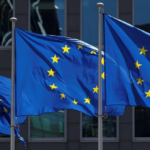How Should We Tax the Digital Economy?

The European Commission has received the final report of the High-level Expert Group on Taxation of the Digital Economy.
This independent group was asked to examine key issues related to taxing the digital economy in the EU, and to present their ideas on the best approach to various challenges and opportunities in this field.
Former Portuguese Finance Minister Vítor Gaspar, who was nominated as Chair of the Group, presented the report to President Jose Manuel Barroso and EU Tax Commissioner Algirdas Šemeta this afternoon.
It was completed after 5 months work by the Group, which consisted of 6 other experts from across Europe with different expertise relevant to this area.
Barroso said: “With the crisis focusing attention on public finances, the issue of fair taxation has moved up the agenda, for both governments and citizens. A strong and fast-growing digital sector is good for our economy, but we must also think about how best to adapt our tax systems to the online world. I welcome the report by Vítor Gaspar and the expert group, which the Commission will now study with interest and draw conclusions in due course.”
Gaspar contributed: “Digitisation opens exciting opportunities for entrepreneurs and for people in general. It also creates challenges and opportunities for tax systems and for tax administrations, which will have to adapt to the new realities. It has been inspiring for me to work with a group of knowledgeable and motivated people. I trust our Report contributes to progress in the international tax policy debate.”
Meanwhile, Šemeta stated: “A united EU approach to tackling tax evasion and a more favourable tax environment for businesses – digital and otherwise – have been our overarching goals in recent years. I am pleased that the High Level Group very much confirms that this is where our energy and efforts must be focused in EU tax policy.”
The report from independent experts covers taxation issues linked to the digital economy in the broadest sense, looking at indirect (VAT) and direct (corporate) taxation, as well as wider issues on how tax policy can help maximise the opportunities that the digital economy offers.
Among the main conclusions of the report are:
The digital economy does not require a separate tax regime. Current rules may need to be adapted to respond to the digitisation of our economy.
Digitisation greatly facilitates cross border business. Removing barriers to the Single Market, including tax barriers, and creating a more favourable business environment through neutral, simplified and coordinated tax rules is therefore more important than ever.
The upcoming move to a destination-based VAT system for digital services is commended, along with the simplification that the mini-One Stop Shop will bring for businesses. The report recommends that this could be further expanded to all goods and services (in business-to-consumer transactions) in the future.
To ensure neutrality and provide a level playing field for EU business, the Group recommends the removal of the VAT exemption for small consignments from non-EU countries. This would be supported by a One Stop Shop and a fast track customs procedure.
In the area of corporate taxation, the G20/OECD Base Erosion and Profit Shifting (BEPS) project will be fundamental to tackling tax avoidance and aggressive tax planning globally. The report strongly recommends that Member States take a common position to ensure a favourable outcome for the entire EU.
Priority areas for the EU within the BEPS project, according to the report, are countering harmful tax competition, revising transfer pricing rules and reviewing the concepts for defining and applying taxable presence
The Common Consolidated Corporate Tax Base (CCCTB ) provides an opportunity for the EU to expand on new international standards (such as transfer pricing profit split methods) and achieve additional simplification within the EU.
More radical reforms of the tax system could also be looked at in the longer term, including a destination-based corporation tax.
The Commission will now consider the report and decide on policy orientations in due course.
Source: goldnews





























